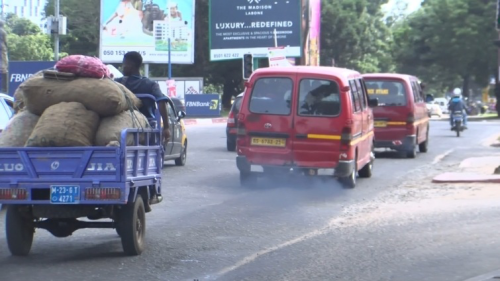AIR POLLUTION LINKED TO 32,000 DEATHS IN GHANA – New Global Report Warns of Growing Health Crisis
A comprehensive global study reveals that toxic air caused over 32,000 deaths in Ghana in 2023, making it the nation’s second-leading risk factor for mortality and robbing citizens of nearly a year of life expectancy.

Air pollution claimed over 32,000 lives in Ghana in 2023, accounting for nearly 14% of all deaths and establishing it as the country’s second-most severe health risk, just behind high blood pressure, according to the State of Global Air 2025 report.
The study, produced by the Health Effects Institute in partnership with the Institute for Health Metrics and Evaluation, highlights a sharp increase from earlier World Health Organisation estimates, which reported 28,000 annual premature deaths in 2019. By 2023, that figure had surged by more than 4,000, signaling a deepening public health emergency.
Among the most vulnerable are Ghana’s children: approximately 5,900 of the recorded deaths were among individuals under 20 years old. On average, air pollution reduces life expectancy for Ghanaians by almost 0.8 years roughly nine months per person.
The health impacts are widespread and severe. One in three heart disease deaths, two-thirds of chronic obstructive pulmonary disease (COPD) fatalities, and one in five diabetes-related deaths are linked to polluted air. Additionally, 33% of lung cancer deaths, neonatal complications, and lower respiratory infections are attributed to poor air quality.
Household air pollution, primarily from burning wood, charcoal, and other solid fuels remains the largest contributor, responsible for 71% of pollution-related deaths. Outdoor particulate matter (PM2.5), largely emitted by vehicles, industrial activities, and waste burning, accounts for the remaining 29%.
Ghana’s annual average PM2.5 concentration stands at 28 µg/m³, nearly six times higher than the WHO’s recommended guideline of 5 µg/m³. Pollution levels have risen by 17% between 2013 and 2023, reflecting deteriorating urban air quality.
In response, Ghana recently passed its first comprehensive air quality law the Environmental Protection (Air Quality Management) Regulations, 2025 which empowers the Environmental Protection Agency to set emission limits and penalize polluters. However, the country still lacks a specific national standard for annual PM2.5 levels.
Experts warn that without urgent and sustained action, air pollution will continue to undermine Ghana’s development, strain its health system, and cut short thousands of lives each year.
Source:NKONKONSA.com




